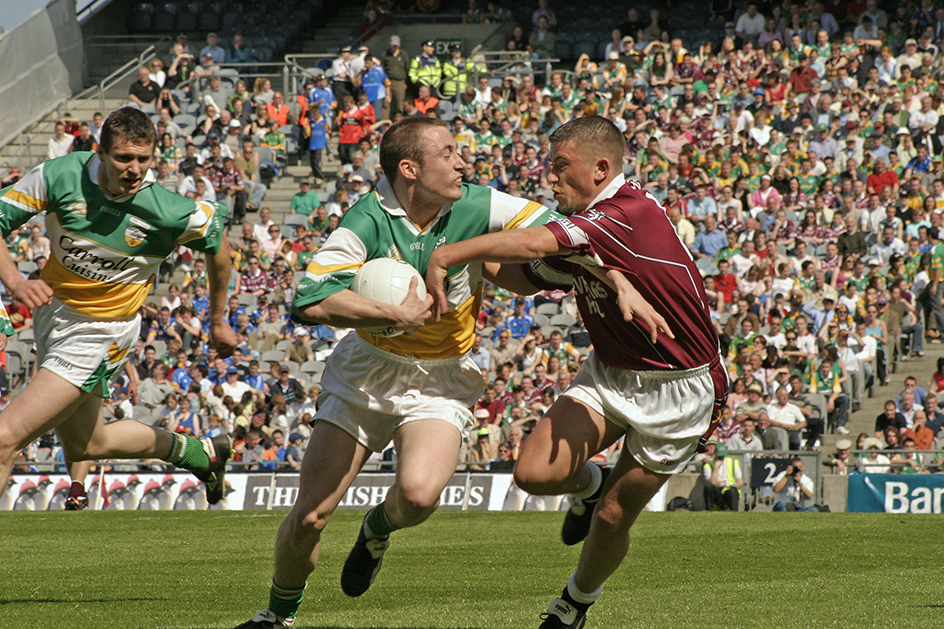Gaelic football, called peil in Irish, is a popular men’s sport in Ireland. It is played on a grass pitch (field) by two teams of 15 players. Gaelic football is one of a group of sports known as Gaelic games. Its controlling body is the Gaelic Athletic Association. The sport was once followed primarily by men, but it is becoming increasingly popular with women spectators.

The dimensions of a Gaelic football pitch are approximately 450 feet (137 meters) by 270 feet (82 meters). The goalposts, similar to those used in rugby football, stand 21 feet (6.4 meters) apart and have crossbars. Each team consists of a goalkeeper, six defenders, two center fielders, and six forwards.
The sport’s ball resembles a soccer ball. A player may kick it, punch it, or handpass it (hold it with one hand and hit it with the other). He may catch the ball, but he can take only four steps before playing it (passing or kicking it to a colleague, or attempting to score). A player scores 1 point if the ball passes between the posts and over the crossbar. A goal (worth 3 points) results if the player gets the ball under the crossbar. The goalkeeper is the only player allowed to pick the ball up directly from the ground. All other players raise the ball with the combined use of their hands and feet.
Gaelic football is a fast game that is played, at the championship level, over 80 minutes (two halves of 35 minutes with a 10-minute intermission or interval). Play is continuous, with no stoppages for injuries. The outstanding features of the game are fielding (high catching), solo runs, and spectacular scores.
The premier competitions are between counties. Each county selects a county team from among the best players on its club teams. The All-Ireland Championship, the major competition, takes place during the summer. The final is played at the Gaelic Athletic Association’s headquarters at Croke Park, Dublin, on the fourth Sunday in September. The National League is played from October to April. There is also an interprovincial competition. Club teams play their own championships within the counties. Most parishes have adult club teams and a range of juvenile teams. (A parish in Ireland is a type of civil administrative unit.)
Dublin is the leading Gaelic football county, but other strong counties include Donegal, Kerry, Mayo, and Tyrone. Among the most famous players of the later 1900’s were Paidi O’Shea, Denis Moran, Pat Spillane, Mike Sheehy, and Ger Power (all of Kerry), who each won a record eight All-Ireland medals. Notable players of the early 2000’s include Bernard Brogan of Dublin, Colm Cooper of Kerry, and Lee Keegan of Mayo.
See also Rugby football .
